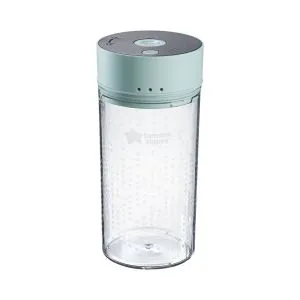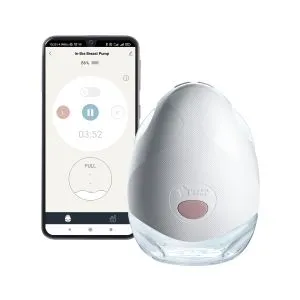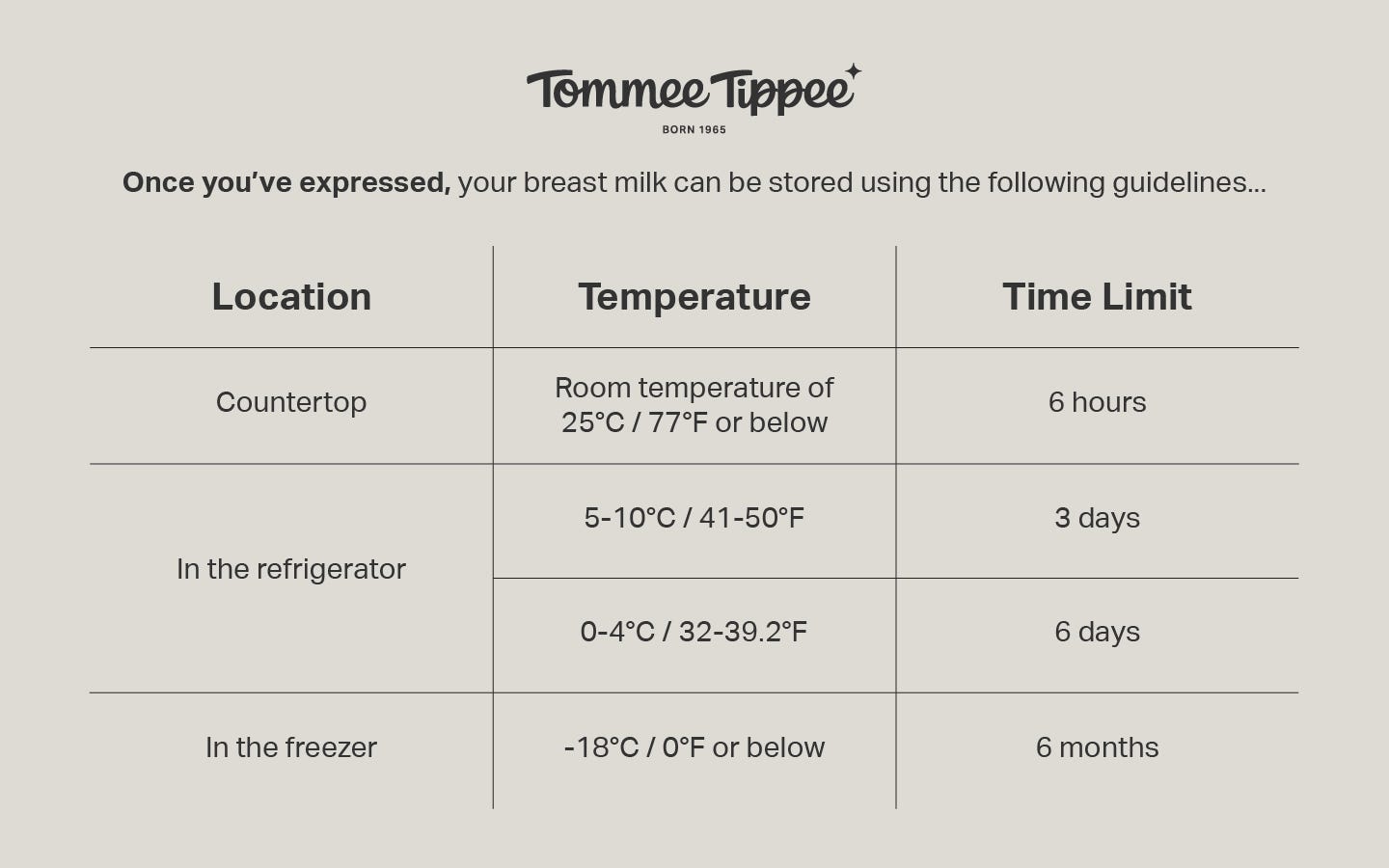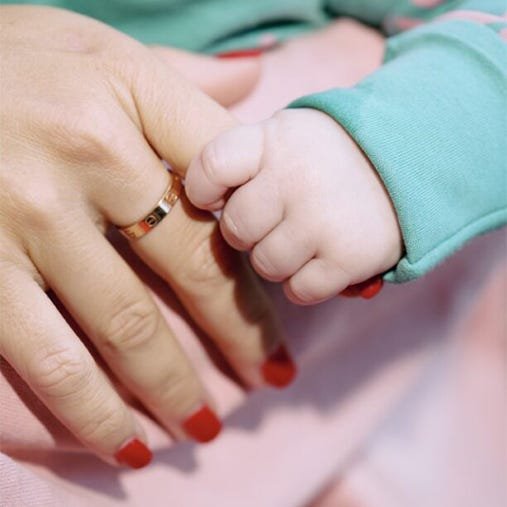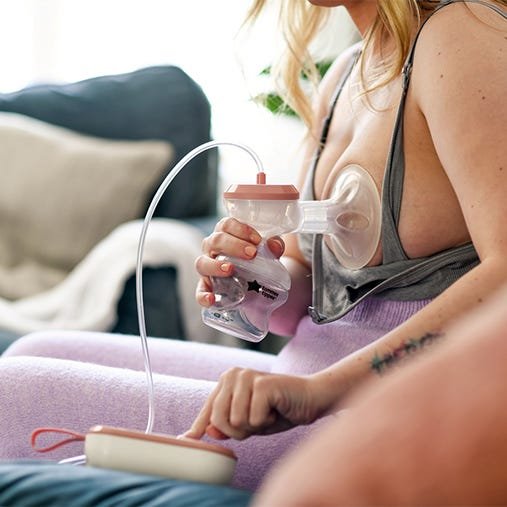Let's face it, parents are busy! Even the most organised can forget things from time to time. And there's no shame in asking questions, such as "is my breast milk still ok?".
That's why we've put together this guide for new parents to help you determine if your expressed breast milk is still safe for your little one if it's been left out of the fridge.
So, whether it's been hand expressed or expressed using a pump, let's run through how long breast milk can stay out of the fridge at room temperature.
How long does breast milk last out of the fridge?
Freshly expressed breast milk can be stored at a room temperature of:
- 25°C or below for up to six hours
- 29°C or higher for two hours
It should ideally be stored in a sterile, covered container. It's important to note that the longer breast milk is left out, the higher the risk of bacteria growth and contamination that can cause sickness and diarrhoea. So, it's best to store your breast milk sit in the fridge or freezer as soon as possible if you're not going to feed it to your baby right away.
If you're unsure whether breast milk is still good, give it a sniff test. If it smells sour or rancid, it's best to discard it.
If you're combination feeding and using formula milk, it's important to always follow the instructions on the formula packaging. Formula milk should be used within the length of a feed (around one hour), and any that's left over once your baby is finished feeding should be discarded.
What should I do if my breast milk is at room temp for too long?
It's important to note that breast milk that's been left at room temperature for more than six hours should not be fed to your baby, despite the effort required to pump and express it.
But don't worry, there's no need to discard this milk if you don't want to. You can use it to treat skin ailments such as eczema, nappy rash, and baby acne. It can also be applied directly to a baby's skin or diluted into their bath water.
Breast milk can even be used by parents to treat skin complaints like rashes or eczema, and some breastfeeding parents even use it to treat cracked and sore nipples.
How long can you keep breast milk stored in the fridge?
Once it's been expressed, breast milk should ideally go straight into the fridge in a sterilised container, bottle, or pouch if you're not going to give it to your baby right away.
Expressed breast milk can be stored in the fridge for up to six days and should be stored at the back, where it's coldest. Breast milk shouldn't be stored in the door of the fridge as the temperature fluctuates when the door is opened and closed.
If your fridge is warmer than 4°C, then the milk should be used within three days. If your fridge doesn't display the temperature, it can be handy to buy a specially designed fridge thermometer to give you peace of mind.
